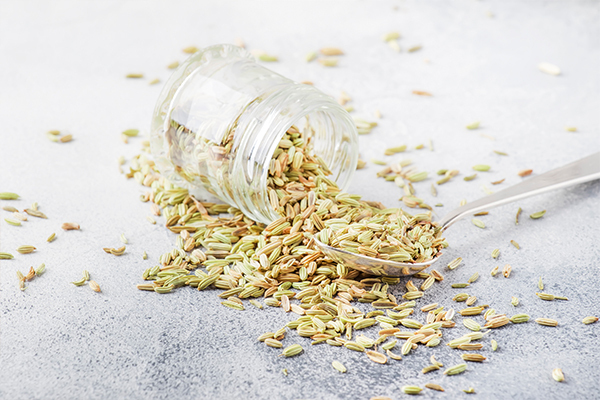Home Remedies for Indigestion
Written by Jessica Lal on February 16, 2023
Indigestion or dyspepsia refers to the body’s inability to digest food, generally due to gastrointestinal problems. It is a fairly common issue that is generally resolved with diet modifications, home remedies and other self-care measures.
Home Remedies to Manage Indigestion
When suffering from indigestion, try to maintain a well-balanced diet.
The following easy remedies may also help take care of mild indigestion and provide symptomatic relief from dyspepsia.
1. Include probiotics in your diet

Probiotics contain beneficial bacteria that help maintain a healthy gut by replenishing the intestinal microflora.
Due to their various health benefits and positive influence on digestion, probiotics have been increasingly advised for indigestion. However, additional research is needed to determine its true efficacy and dosage. Consume pickles, yogurt, sauerkraut, or probiotic drinks.
2. Consume ginger
Ginger is a well-known remedy for stomach-related issues. It stimulates digestive juices and enhances the flow of enzymes, promoting good digestion.
Ginger is reported to aid in functional dyspepsia treatment by stimulating antral contractions and gastric emptying. However, its use for gastrointestinal issues is limited.
3. Consume peppermint
Peppermint is widely known for its anti-inflammatory, stomachic, antiseptic, carminative, astringent, analgesic, decongestant, expectorant, and anesthetic properties. Peppermint can also help soothe digestion problems.
4. Use licorice root
Licorice root can have a positive impact on gastroenterological disorders by alleviating inflammation and muscle spasms in the gastrointestinal tract caused by indigestion.
5. Consider caraway
Caraway oil, along with peppermint oil or menthol, is used for the treatment of functional dyspepsia. For relief from IBS symptoms, or colic and flatulence in children, caraway oil can be applied topically to the abdomen.
6. Consume fennel

Fennel has been found to help in relieving digestion and in reducing colic, gas, bloating, abdominal pain, indigestion, nausea, flatulence, and intestinal disorders.
Fennel contains a bioactive compound called fenchone that helps relax the smooth muscle lining of the digestive tract.
7. Use sodium bicarbonate
Sodium bicarbonate, or baking soda, helps neutralize stomach acid and thus manage acid reflux. You can mix 1 teaspoon of baking soda in a glass of water and consume the solution multiple times a day.
Caution: Avoid using this remedy for more than a week as its high salt content can cause swelling and nausea.
8. Chew gum
Chewing gum stimulates the production of saliva, which helps neutralize stomach acid when swallowed. Moreover, the swallowing action helps push the acid back into the stomach, thus preventing acid reflux.
Caution: Avoid excessive use of chewing gum as it can cause diarrhea.
9. Drink apple cider vinegar
Apple cider vinegar (ACV) is popularly used in the treatment of acid reflux, a common cause of indigestion. However, no research supports its use. Make sure to dilute ACV with warm water before consuming.
10. Consume mustard
Mustard contains various minerals and alkaline substances that can help neutralize stomach acid. You can consume 1 teaspoon of mustard or mix mustard seed powder in water and drink the mixture.
Caution: Avoid excessive consumption of mustard as it can cause diarrhea and inflammation. Use only cooked mustard seeds.







